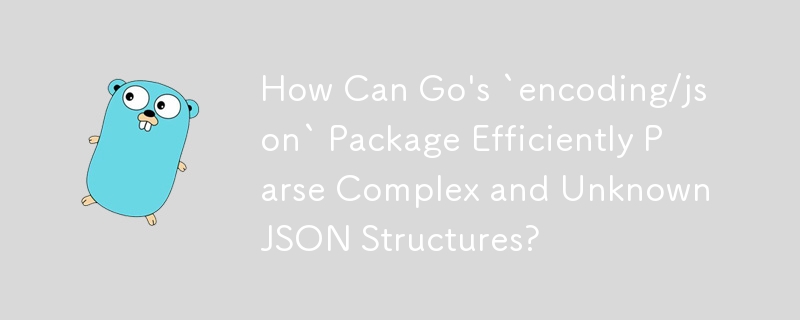

Parsing complex JSON structures can be challenging in any programming language, but Go provides helpful tools to make it easier.
In Go, the encoding/json package provides the json.Unmarshal function for parsing JSON data. As this question highlights, a key challenge lies in handling complex JSON structures with unknown formats.
As suggested in the answer, a powerful approach is to use Unmarshal to decode the JSON into an empty interface interface{}. This assigns the parsed JSON to a map[string]interface{} under the hood:
type MyStruct struct {
K1 string `json:"k1"`
K3 int `json:"k3"`
Result [][]interface{} `json:"result"`
}
var s MyStruct
err := json.Unmarshal(jsonBytes, &s)After decoding, the resulting map can be accessed using f.(map[string]interface{}).
To extract the data, iterate over the map and use type switches to determine the type of each value:
for k, v := range f {
switch v := v.(type) {
case string:
case int:
case []interface{}:
case map[string]interface{}:
}
}This allows you to safely handle values of different types, ensuring type safety while parsing dynamic JSON structures.
The provided JSON sample contains arrays and nested objects in the "result" field. In Go, this translates to [][]interface{} and map[string]interface{}, respectively. Using the above approach, you can access and inspect these structures in a structured manner.
By understanding the concept of decoding into an interface and leveraging type switches, you can effectively handle even complex JSON parsing scenarios.
The above is the detailed content of How Can Go's `encoding/json` Package Efficiently Parse Complex and Unknown JSON Structures?. For more information, please follow other related articles on the PHP Chinese website!




